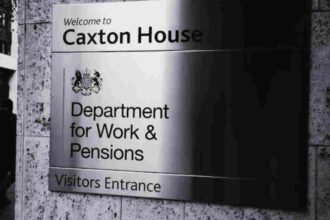The Resolution Foundation has marked it’s 20-year anniversary with a new report covering how Britain has changed since its inception. One graph which stands out shows the UK is experiencing “an unprecedented pay depression”:
The Great Pay Depression
The 2005 to 2025 period has seen both Labour and Tory governments, with three PMs of the former and five of the latter. That’s a total of eight PMs, which is one every 2.5 years on average.
As a point of comparison, Doctor Who returned to TV screens in 2005, and we’ve only had six actors credited with the lead role in that time. The Doctor is a magically regenerating space alien, of course, so they have an excuse; we’re not sure how you justify this many PMs.
Between 1985 and 2005, we had three prime ministers: Margaret Thatcher, John Major, and Tony Blair. We’re not arguing these people did a better job than those who followed, but we are certain the instability modern governments suffer is linked to their inability to deliver a stable economic situation for the British majority.
Here’s what the Resolution Foundation said on the pay depression:
Most working-age families get most of their income from work, so what happens in the labour market is of critical importance to living standards. That’s even true among households in the bottom half of the income distribution, where wages are three times as important as income from the social security system.
The most important change from a living standards perspective over the past 20 years has been the collapse of real earnings growth after the financial crisis. This calamitous fall-off is familiar, but it’s worth restating because it has dominated the grim living standards picture over the past two decades.In the 20 years running up to RF’s creation in 2005, average earnings grew by 68 per cent in real terms. In the 20 years since, they grew by just 6 per cent. Had earnings continued to grow in real terms at their 1985-2005 pace, average earnings today would be £394 per week higher.
Slowdown
The Resolution Foundation drew attention to its new report online:
The big picture is an acute living standards slowdown across Britain over the past 20 years, affecting everyone.
The scale of this slowdown is so large that a typical family today would be £20,000 richer had incomes continued at the rate of growth trending in 2005, when the… pic.twitter.com/bETQzEdsSg
— Resolution Foundation (@resfoundation) September 18, 2025
Compared to countries like France, the UK’s major cities outside London make a smaller contribution to national prosperity.
These cities hold the key to Britain’s economic revival. pic.twitter.com/AJrHsgeeLP
— Resolution Foundation (@resfoundation) September 18, 2025
The Resolution Foundation highlight that while overall pay growth has slowed, fewer people experience comparable ‘low pay’:
This policy has all but all but eradicated hourly low pay.
The share of employees with hourly pay below two-thirds of the median fell to 3% in 2024, having been above 20% for most of the previous 30 years. pic.twitter.com/glvAHB65D8
— Resolution Foundation (@resfoundation) September 18, 2025
1.9 million workers currently paid the minimum wage earn 37% more in real terms; that’s £125 more per week based on a 37.5-hour week.
The National Living Wage alone has boosted the pay of a full-time worker on the wage floor by £83 a week.
— Resolution Foundation (@resfoundation) September 18, 2025
This results from booming asset prices; house prices rose by 152% in real terms since 1997, earnings rose just 36%.
Passive gains are delivered to (often older) homeowners, while it now takes a typical young family 12 years to save a deposit for a first time-property, up from 7…
— Resolution Foundation (@resfoundation) September 18, 2025
As the Canary has covered, while the state may be bigger (i.e. more expensive to run), in many cases that’s because we’ve sold our assets off to foreign interests and homegrown billionaires (and yet we still pay to keep them operational!).
So, the task of lifting living standards across Britain is bigger and more important than ever.
The success of the National Living Wage shows you can still do good things in tough times; but you can do even more good things in better times.
— Resolution Foundation (@resfoundation) September 18, 2025
Here’s hoping
We hope we can return to this story in 20 years to say that things are now on the right track. In the meantime, we’ll continue to follow the Resolution Foundation and the good work they do visualising what’s going on in this country.
Featured image via UK Government (Flickr)













